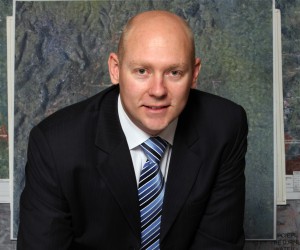Speaking on the final day of the 2014 Mining Indaba, Archbishop Njongonkulu Ndungane said sustainable development would only occur when all stakeholders started to play an active role.
Donald Gibson, a partner at consultancy SRK Consulting, noted with interest the Archbishop’s focus on ethical leadership and best practice, in addition to environmental and social imperatives.
Ndungane’s call to action summed up this year’s Mining Indaba, in which perennial step-children sustainability and corporate social responsibility were finally given a place at the big table. This mainstreaming of sustainability is a positive development, said Gibson.
“The issues we’ve been talking about for many years are starting to find their way into the mainstream. Integration, long-term thinking, collaboration and multiple stakeholder approaches are how we advise our clients to manage their businesses, but I think mining executives and engineers are starting to believe this approach is both needed and the right thing to do.”
Now it’s time to turn that intention into action. “I’d like to see more on-the ground people sharing challenges and successes in these forums,” said Gibson, who stressed the need for African mining houses to internalise and initiate more sustainable practices and fully-fledged engagement with communities.
Research by Michael E. Porter and Mark Kramer (The Big Idea: Creating Shared Value, Harvard Business Review, January 2011) into the importance of creating shared value for shareholders and society is crucial in this debate, said Gibson. “It links very closely to what CEOs were talking about at this year’s Mining Indaba and what (Anglo American CEO) Mark Cutifani said last year about the mining sector rebranding itself from an extractive industry to a developmental industry.”
Continued Gibson: “Marikana had a ripple effect through mining and stimulated a broader discussion around the role of mining in society. Mining can be, and in many cases is, an important agent to develop the societies and countries in which it operates.”
However, Gibson noted that there was regrettably still some cynicism around value creation and sustainable mining practices among some delegates; particularly around international environmental and social standards and those constraints on mining. “It was astonishing to hear what is, quite frankly, boring, old school and narrow capitalistic thinking that reminded me of Milton Friedman’s widely discussed perspective that the only social responsibility of business is to create profits,” he said.
Looking at the impact of costly delays in mining project development, a large proportion of which are attributable to environmental and social issues, Gibson noted: “If that doesn’t prove the business case then I don’t know what does. We need a different approach, because it’s clear that business as usual isn’t working.”
Making this shift would require ethical leadership, innovation and skills development, a focus on human capital, knowledge and ability to understand complexity. “We need soft skills and managers who can collaborate and influence people and work with partners to solve common problems,” said Gibson. “The Indaba highlighted how we need to look beyond the spatial boundaries of our own individual mines to working with neighbouring mines around common problems.”
Make no mistake, mining has a hugely positive role to play in building society and affecting development, stressed Gibson: “But mining is often its own worst enemy, as there are substantial negative impacts which need to be managed. Mining needs to accept that in many instances it does have a negative impact and it needs to take responsibility.”
The mainstreaming of sustainability is a step in the right direction. It’s a move away from procedural, compliance box ticking towards a focus on contributing positive social and environmental impacts and creating value for society. It’s a smarter way to do business, and it bodes well for 2014.






